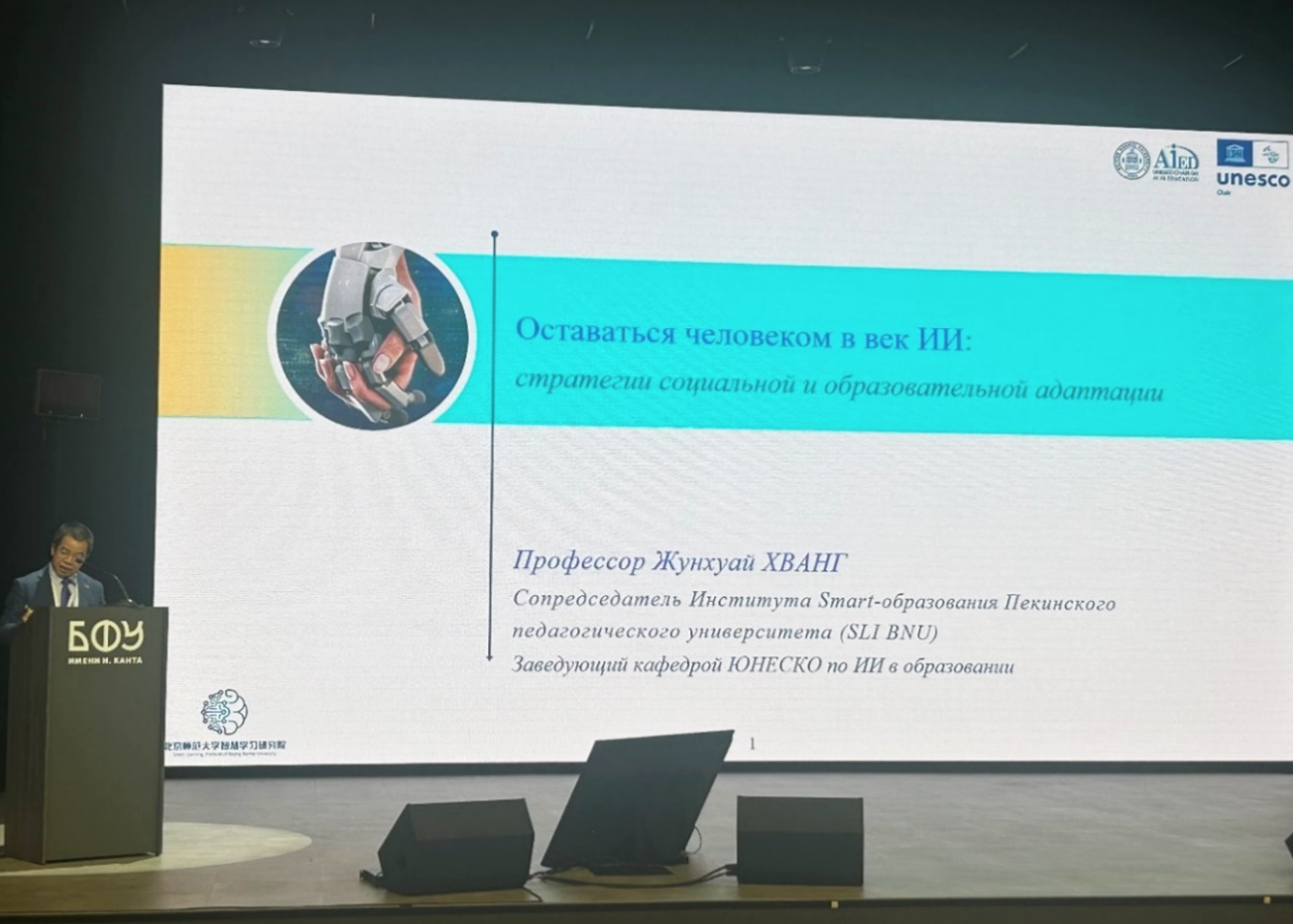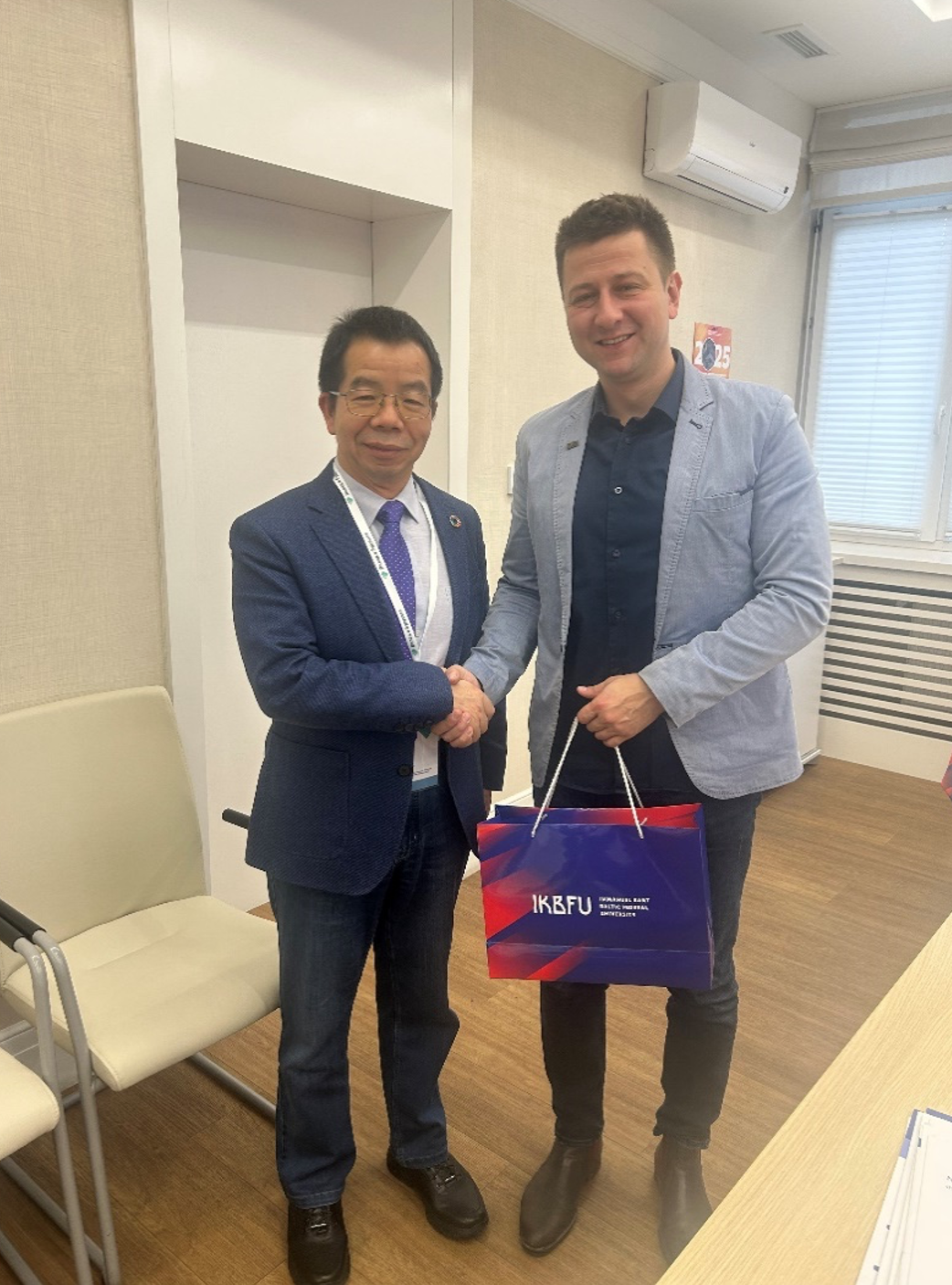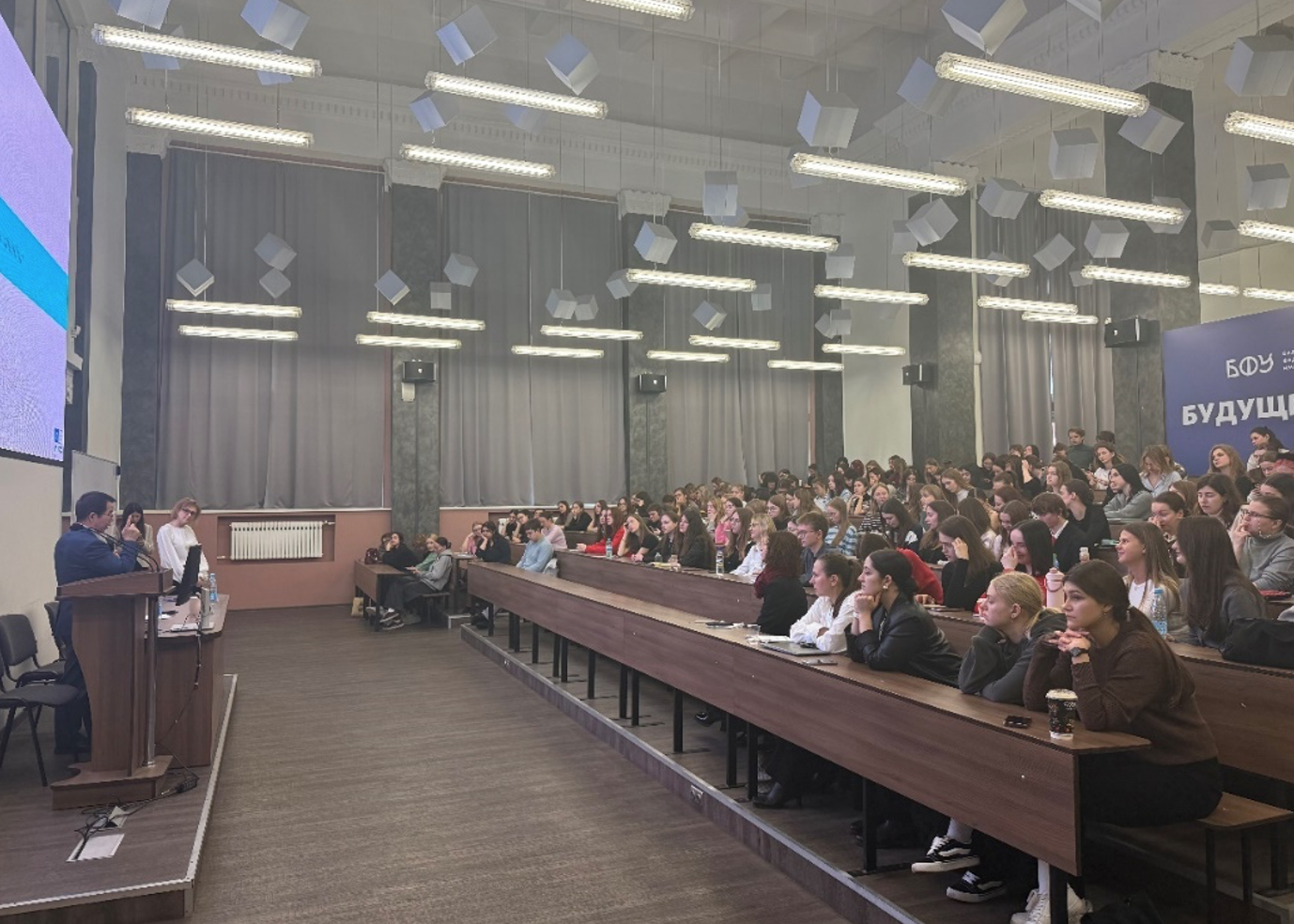Professor Huang Ronghuai Visits Russia to Attend International Conference and Immanuel Kant Baltic Federal University, Exploring Educational Transformation and Human-Centered Development in the Age of Artificial Intelligence
From October 29 to 31, 2025, Professor Huang Ronghuai, Co-Dean of the Smart Learning Institute of Beijing Normal University, UNESCO Chairholder on Artificial Intelligence in Education, and Director of the National Engineering Research Center for Cyberlearning and Intelligent Technology, was invited to Kaliningrad, Russia. He participated in the IV Convention of the Personality Potential Development Centers and the Ambassadors, co-hosted by the UNESCO Institute for Information Technologies in Education (UNESCO IITE), the Investment in the Future Charitable Foundation, andImmanuel Kant Baltic Federal University (IKBFU) to deliver academic lectures and engage in scholarly exchanges.
This visit aims to advance cooperation and joint development in smart education, artificial intelligence, and educational innovation among China, Russia, and the Central Asian countries.
Focusing on human-centered education and social adaptation in the era of artificial intelligence
The conference, entitled “The Path of Personality Development: Human. Machine. Environment,” attracted over 400 delegates from the Russian Federation and the five Central Asian countries—Kazakhstan, Kyrgyzstan, Tajikistan, Turkmenistan, and Uzbekistan.
Professor Huang Ronghuai was invited to deliver a keynote address entitled 'Staying Human in the Age of AI: Strategies on Societal and Educational Adaptation.' He emphasized that AI is reshaping social structures and educational ecosystems, yet the fundamental purpose of education must always remain human-centered. In the context of accelerating AI development, education should prioritize cultivating creativity, critical thinking, and ethical awareness. By building a 'human-machine collaborative' smart education ecosystem, it is possible to promote learners’ autonomy and lifelong development.
During the conference, participants engaged in in-depth discussions on topics such as 'AI as a Factor Shaping the Educational Environment,' 'Evidence-Based Educational Governance,' and 'Personality Development-Oriented Construction of Learning Ecosystems.' The latest achievements of the joint UNESCO IITE and Future Foundation project—' Empowering through Education: Health and Well-being in a Personality-Developing Learning Environment'—were also presented.

Figure 1. Professor Huang Ronghuai delivers a keynote speech at the conference.
Engaging with schools to investigate AI education practices
During the conference, Professor Huang Ronghuai, together with Dr. Zhan Tao, Director of UNESCO IITE, and Mr. Petr Polozhevets, Executive Director of the Future Foundation, visited Kaliningrad Municipal Secondary School No. 57 (МАОУ СОШ №57) and the 'School of the Future' (Школа Будущего) to examine Russia’s innovative practices in the application of artificial intelligence in education, the development of digital learning environments, and the cultivation of students’ personal potential.
As prominent members of local resource centers dedicated to developing human potential, the two institutions presented their latest achievements and experiences in educational digital transformation, enhancing student well-being, and AI-enabled teaching. The visit further strengthened China-Russia exchange and cooperation in educational innovation and practical implementation.
Visit to Immanuel Kant University: Exploring Global Transformations in Higher Education
From October 29 to 30, Professor Huang Ronghuai visited Immanuel Kant Baltic Federal University (IKBFU) and held discussions with President Mr. Maxim Demin. The two sides engaged in in-depth discussions on the digital transformation of higher education, AI-empowered teacher development, international research collaboration, and the cultivation of young talents. Both parties agreed that there is significant potential for cooperation between Chinese and Russian universities in the areas of smart education and educational technology innovation.
Immanuel Kant Baltic Federal University, located in Kaliningrad—the hometown of philosopher Immanuel Kant—is one of the most influential comprehensive universities in western Russia. Its predecessor, the Albertina University of Königsberg, was established in 1544 and is renowned as the 'cradle of Enlightenment spirit.'Professor Kant taught here for many years, and his philosophy of 'rationality, freedom, and responsibility' has profoundly shaped educational ideals across Europe and around the world. Today, Immanuel Kant University draws upon this intellectual heritage, striving to strike a balanced approach between humanistic rationality and technological advancement.

Figure 2: Meeting with President Maksim Demin of IKBFU
On October 30, Professor Huang Ronghuai delivered a public lecture entitled 'Global Trends on Transforming Higher Education in the AI Era: Lessons from 100+ EdTech Projects' at the main building of Immanuel Kant University. The lecture was jointly hosted by UNESCO IITE and Immanuel Kant Baltic Federal University (IKBFU), attracting more than 300 faculty members and students.
The lecture took place in the historic hall where Immanuel Kant once taught logic and ethics, symbolizing the continuation and dialogue of rationality and humanistic spirit in the new era. Professor Huang, adopting a global perspective, reviewed the transformative wave sweeping higher education under the impetus of AI, shared practical cases from over 100 universities, and expounded on AI's innovative applications in teaching, research, and governance. He emphasized that the rapid development of AI is redefining the nature of knowledge, modes of learning, and the social mission of universities, while affirming that the fundamental purpose of education remains the promotion of human freedom and holistic development.

Figure 3 Professor Huang Ronghuai delivering a lecture at Immanuel Kant Baltic Federal University
Deepening Cooperation, Co-creating the Future of Education
During this series of visits and exchanges, Professor Huang Ronghuai engaged in in-depth discussions with representatives from UNESCO IITE and the Future Foundation on topics such as artificial intelligence-enabled educational innovation, the construction of regional cooperation mechanisms, and youth education design initiatives. All three parties expressed their commitment to continuing to advance future-oriented educational collaboration and to jointly explore human-centered transformation and sustainable development pathways for education in the era of artificial intelligence.
This visit not only demonstrated Beijing Normal University's international influence in the field of artificial intelligence and education but also established a solid foundation for collaboration in smart education, human-centered development, and inclusive educational innovation among China, Russia, and the Central Asian regions.


